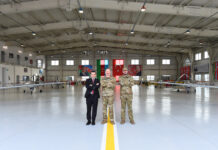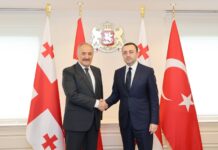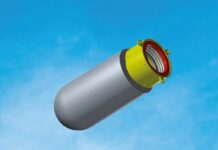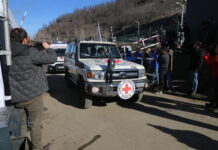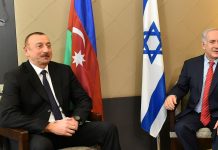With Azerbaijani President Ilham Aliyev stating on 20 September 2023 that his forces had taken back the breakaway region of Nagorno-Karabakh after a rapidly executed offensive launched the previous day, Armenia appears to have suffered indirect fallout from the war in Ukraine.
Although internationally recognised as part of Azerbaijan, the landlocked region of Nagorno Karabakh had been governed by the ethnic Armenian Republic of Artsakh ever since the First Nagorno-Karabakh War of 1988-94 straddled the dissolution of the Soviet Union. While Russia has historically acted as Armenia’s security guarantor, and thus by extension propped up Nagorno-Karabakh’s separatism, Azerbaijan has counted on support from Turkey.
A second conflict between Azerbaijan and Artsakh from September to November 2020 saw Azerbaijan regain a significant amount of territory before a ceasefire agreement brokered by Moscow saw a 2,000-strong Russian peacekeeping force deployed to the region.
However, in recent times Armenia’s relationship with Russia has become strained. In November 2022 Armenian Prime Minister Nikol Pashinyan criticised the Russian-led Collective Security Treaty Organization (CSTO) at its summit for refusing to support Armenia following clashes with Azeri forces over the previous two years.
In June this year Pashinyan told CNN Prima News, “We are not Russia’s ally in the war with Ukraine. And our feeling from that war, from that conflict, is anxiety because it directly affects all our relationships. In the West they notice that we are Russia’s ally … in Russia they see that we are not their ally in the Ukraine war, and it turns out that we are not anyone’s ally in this situation, which means that we are vulnerable.”
Shortly before the recent Azeri offensive Pashinyan told Italy’s La Repubblica newspaper, “Armenia’s security architecture 99.999% was linked to Russia … but today we see that Russia itself is in need of weapons, arms and ammunition [and] cannot meet Armenia’s security needs.”
Likely sensing it was the right time to strike, having imposed a blockade of Nagorno-Karabakh since December 2022, Azerbaijan’s 19 September offensive was comprehensively successful, although it has been reported that hundreds of people were killed in the fighting.
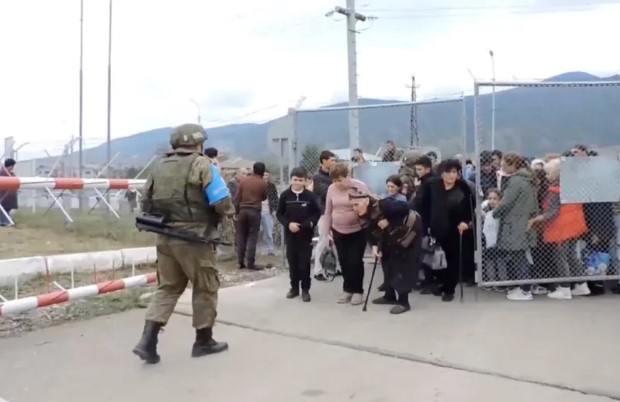
Azeri President Ilham Aliyev delivered a statement to the nation on the evening of 20 September in which he stated that Azerbaijan had restored its sovereignty “with an iron fist”.
Hikmet Hajiyev, Aliyev’s adviser on foreign affairs, was quoted in The Times as insisting the offensive was not a pre-planned operation but a response to landmine attacks against Azeris by Artsakh separatists. The speed of the Azeri victory, however, suggests otherwise.
As a ceasefire began at 1300 local time on 20 September, the Artsakh presidential office stated that its army was significant outnumbered by the attacking Azeri forces and that it had no choice but to surrender and agree to “the dissolution and complete disarmament of its armed forces”.
For the Armenians it was apparent that Russia and its contingent of peacekeepers in the region were either powerless to influence events or possibly even complicit in how they turned out.
Pashinyan said of the Azeri offensive that it was “strange and perplexing” that his government did not receive “any information from our partners in Russia about that operation”.
Peter Felstead



